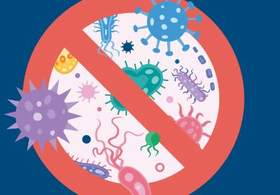Getting adequate sleep often takes a backseat to our busy schedules, but consistently skimping on rest can have serious consequences for our health. Sleep is essential for cognitive function, emotional well-being, and physical health, yet many adults are not getting the recommended amount. While six hours of sleep may seem sufficient for some, experts agree that it falls short of the minimum seven hours recommended by the American Academy of Sleep Medicine. Regularly getting less than seven hours of sleep can impair memory, decision-making, and immune function, while increasing the risk of chronic health conditions like heart disease and diabetes. Here’s why sleep matters and strategies to help you get more of it.
The Importance of Sleep for Health and Well-Being
Sleep is a biological necessity, accounting for roughly one-third of our lives. During sleep, the body focuses on repair, growth, and recovery, essential processes that maintain overall health. Adequate sleep also plays a critical role in brain function, helping with memory consolidation, problem-solving, and emotional regulation. A good night’s sleep can also keep hunger hormones in check, reducing the likelihood of overeating and weight gain. Moreover, a well-rested body is better equipped to fend off illness, with studies showing a strong link between sufficient sleep and a robust immune system.
The Risks of Sleeping Less Than Seven Hours
Despite its importance, many people struggle to get enough sleep, with one in three adults reporting insufficient sleep. Chronic sleep deprivation, defined as getting less than six hours of sleep per night, can lead to a host of problems. In the short term, it can cause fatigue, irritability, headaches, and difficulty concentrating. Over time, it can contribute to more serious issues, such as delayed wound healing, hormonal imbalances, and a weakened immune system. Sleep-deprived individuals are also at a higher risk of accidents; drivers who sleep less than six hours are significantly more likely to be involved in car crashes. Furthermore, chronic lack of sleep is associated with a greater risk of developing heart disease, obesity, type 2 diabetes, and mental health disorders like depression.
Strategies for Better Sleep
Improving sleep quality and duration is crucial for maintaining health. Here are some strategies to help you get more restful sleep:
- Set a Bedtime Alarm: Just as you set an alarm to wake up, set one to remind you to go to bed.
- Gradually Increase Sleep Time: If you’re used to six hours of sleep, try going to bed 5 to 10 minutes earlier each night until you reach at least seven hours.
- Create a Calming Bedtime Routine: Unwind before bed with activities like reading, taking a warm bath, or enjoying a cup of herbal tea.
- Unplug Before Bed: Turn off electronic devices at least an hour before sleep to avoid disrupting your circadian rhythm.
- Be Mindful of Caffeine and Alcohol: Limit caffeine intake in the afternoon and evening, and avoid alcohol before bed, as it can disrupt sleep.
- Watch Your Diet: Avoid heavy or spicy meals close to bedtime. If you need a snack, choose sleep-friendly foods like those rich in tryptophan.
- Evaluate Your Schedule: Look for ways to free up time in your daily routine to allow for more sleep.
- Consult a Doctor: If you have persistent trouble sleeping, speak with a healthcare provider or sleep specialist.
The Bottom Line
Sleep is vital for overall health and well-being, and consistently getting less than seven hours can have detrimental effects. While six hours might feel manageable, it’s not enough to support optimal physical, mental, and emotional health. Prioritizing sleep by making small adjustments to your routine can lead to significant improvements in quality of life. Aim for at least seven hours of sleep each night to ensure you’re giving your body and mind the rest they need to function at their best.














Leave a Reply